Introduction
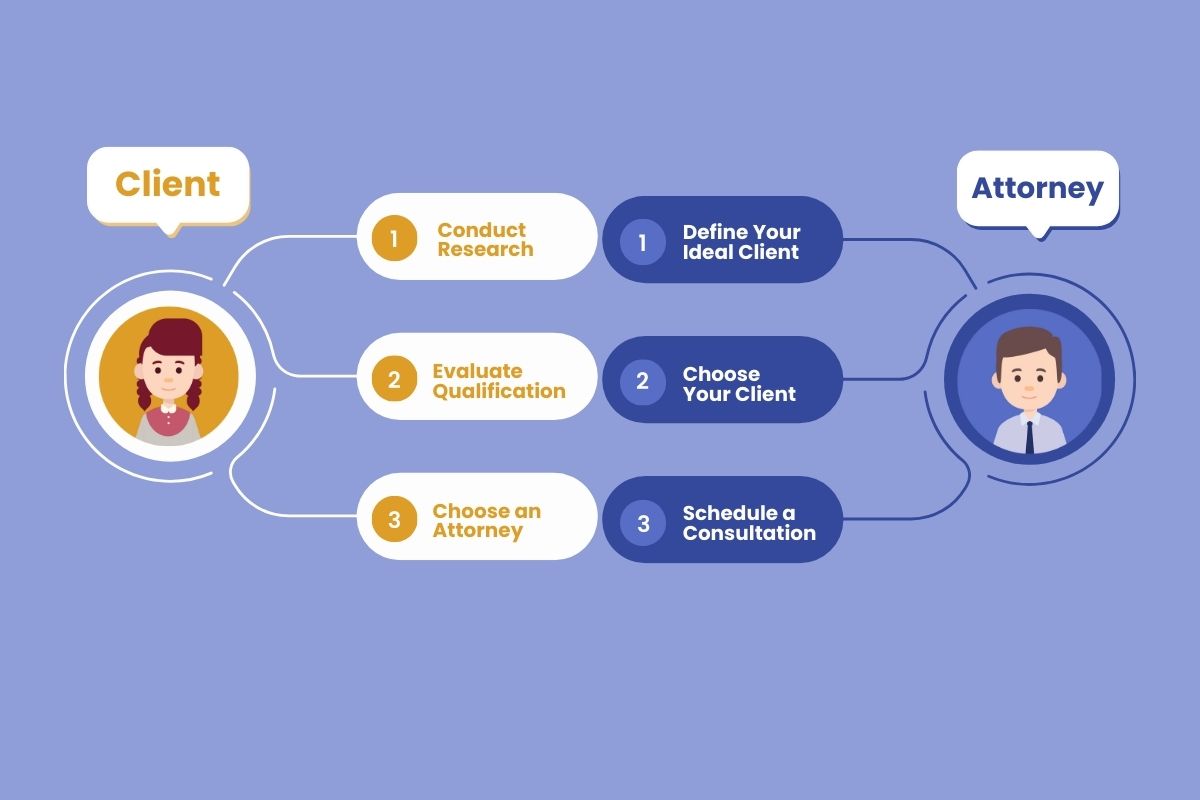
As a private practice attorney, you’re the one who makes sure lots of people know about your law firm so they can come to you for legal services. In addition to networking and traditional advertising, you probably have a website and social media presence. You may even have explored pay-per-click (PPC) online advertising, with varying results.
But if you want the kind of organic traffic that translates into long-term legal leads and more potential clients, the answer is search engine optimization (SEO). To help you get started making this “superpower” work for your law firm, here is an introduction to the concept and a step-by-step overview of SEO for lawyers.
Search engines use complex algorithms to rank websites when they provide search results, and these algorithms are constantly being updated and refined by the search engine companies. SEO is a set of practices that make your website easy for both human users and search engine algorithms to understand. SEO is based on well-established principles and techniques that are rooted in how search engines work.
While there are technical aspects to SEO, it can be learned and applied by anyone with the right knowledge and resources. You may already know that keywords are an important part of SEO, but they are only one factor that search engines consider when ranking websites. Other factors include the quality and relevance of your website’s content, the structure and organization of your website, and the presence of high-quality backlinks from other websites.
Because the competition for top rankings is always evolving, you need to regularly update your website’s SEO to maintain and improve your search engine rankings. It also takes time for the effects of an SEO campaign to become apparent. Search engines need time to index and rank your website’s pages, so be patient because it may take several weeks or months to see the full benefits of your SEO efforts.
Do Law Firms Need SEO?
Yes, law firm SEO and attorney SEO can be a tool for success. Almost every legal client uses an online search engine when they start looking for legal advice.
You want your law firm’s website to show up in their search results. SEO makes this possible by giving the search engines what they need to understand what your site is about so they can send relevant traffic your way without ongoing ad spending.
Your law firm needs SEO to ensure that your site appears as high as possible in search engine rankings for keywords that are relevant to your legal practice. If your law firm does not use SEO or is not optimized for search engines to find it, your website will become lost in the forest of search engine results. It will be buried at the bottom with hundreds of other law firm websites.
Having your law firm’s website at the top of search result rankings will bring in a steady stream of potential clients. Otherwise, you will lose clients to law firms that have invested in SEO to be at the top of Google rankings.
Why Is SEO Important for Lawyers/Law Firms?
SEO allows you to maximize the time you spend working in your law firm (as a lawyer) rather than on your business (as a marketer). While SEO requires some time investment to set up, most of it is front-loaded such that you can generate the keywords, content, etc. initially and then maintain it. Unlike PPC or social media campaigns which are time-intensive on a daily basis, SEO isn’t a daily or even weekly requirement.
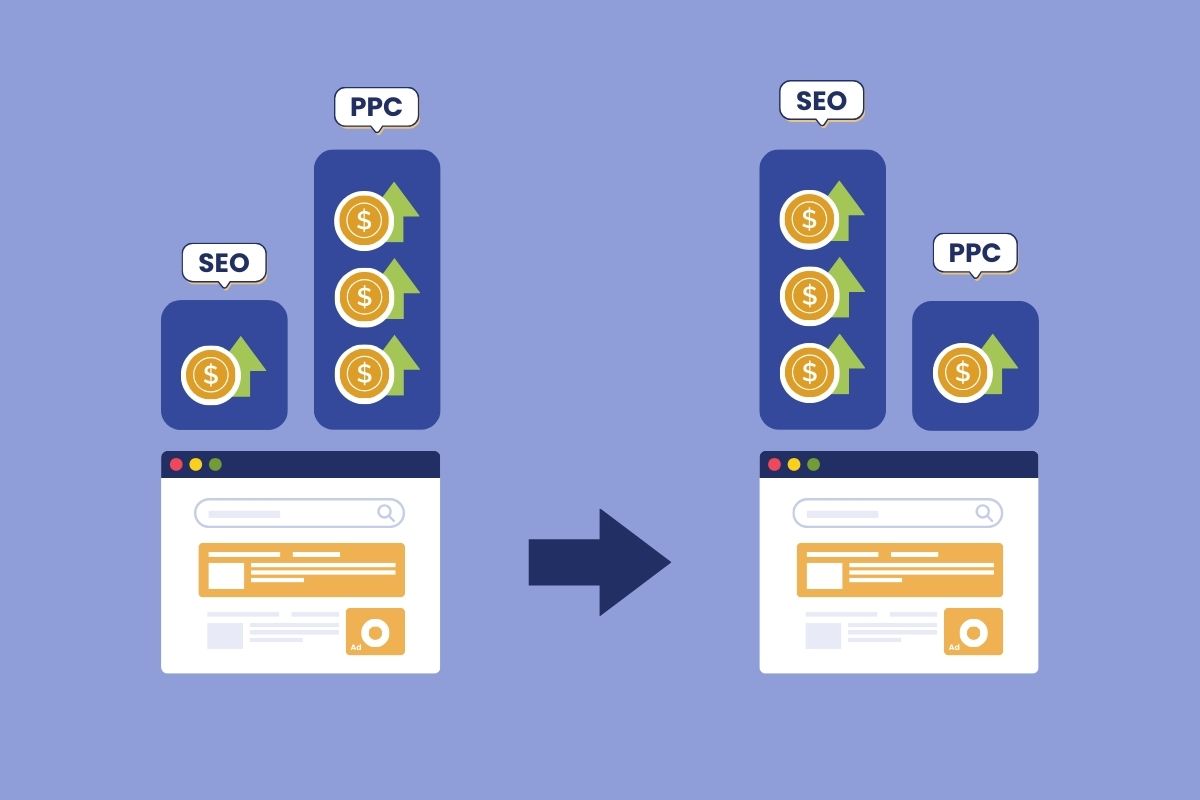
SEO also lets you stop paying for every legal lead and helps you get leads that are relevant to your legal specialization, unlike PPC or phone leads. SEO is about making your existing website as attractive to search engines as possible, rather than expending additional cash on placing advertisements in other areas. As such, SEO will bring in more clients with your existing resources instead of becoming a money sink like other forms of marketing.
Picture this: your website is fully optimized with substantive content, keywords, and fully linked to your other business profiles and social media accounts. Your website sits at the top of keyword rankings for your local business areas and is bringing in a steady flow of potential clients week after week. Your firm doesn’t have to expend any extra money or cash other than to keep your website updated periodically. You’re free to meet with your new clients and work with your existing clients without having to appear in advertisements that would otherwise annoy or alienate people who dislike advertising.
SEO is the key to making your firm independent of advertising by placing your website at the top of search engine results. Of course, SEO can work alongside traditional advertising or other forms of internet advertising, but it is a fully operational form of marketing all by itself.
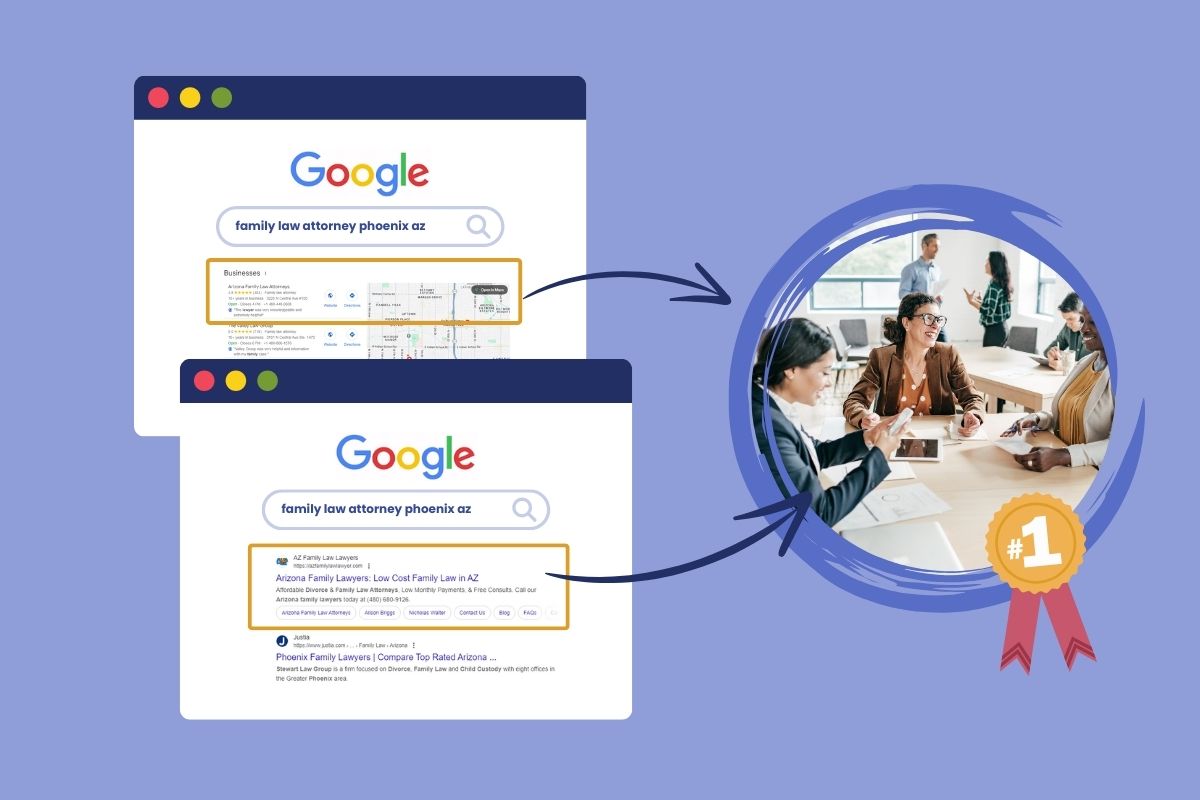
How SEO Compares to Other Marketing Options
SEO can be a more efficient marketing tool than other options if you use it properly. The return on investment for SEO is potentially higher than most other forms of advertising. To put it simply, SEO can generate the most leads for the least amount of money spent.
Phone leads and social media campaigns can be expensive and time-consuming, especially if a marketing company charges your office for every lead. SEO must be constantly maintained, but it is by no means a daily or even weekly requirement. Proper SEO use means that attorneys can maximize their time practicing law rather than finding the next client.
SEO is also very successful in comparison with other marketing options online. A top search engine rank typically generates 66% of call conversions in the legal sector. SEO often outperforms social media outreach and internet advertisements.
SEO has the advantage of being organic. Most people do not want to be bombarded with advertisements and pop-up ads. SEO directly gives prospective clients a method to address their legal issues – your law firm.
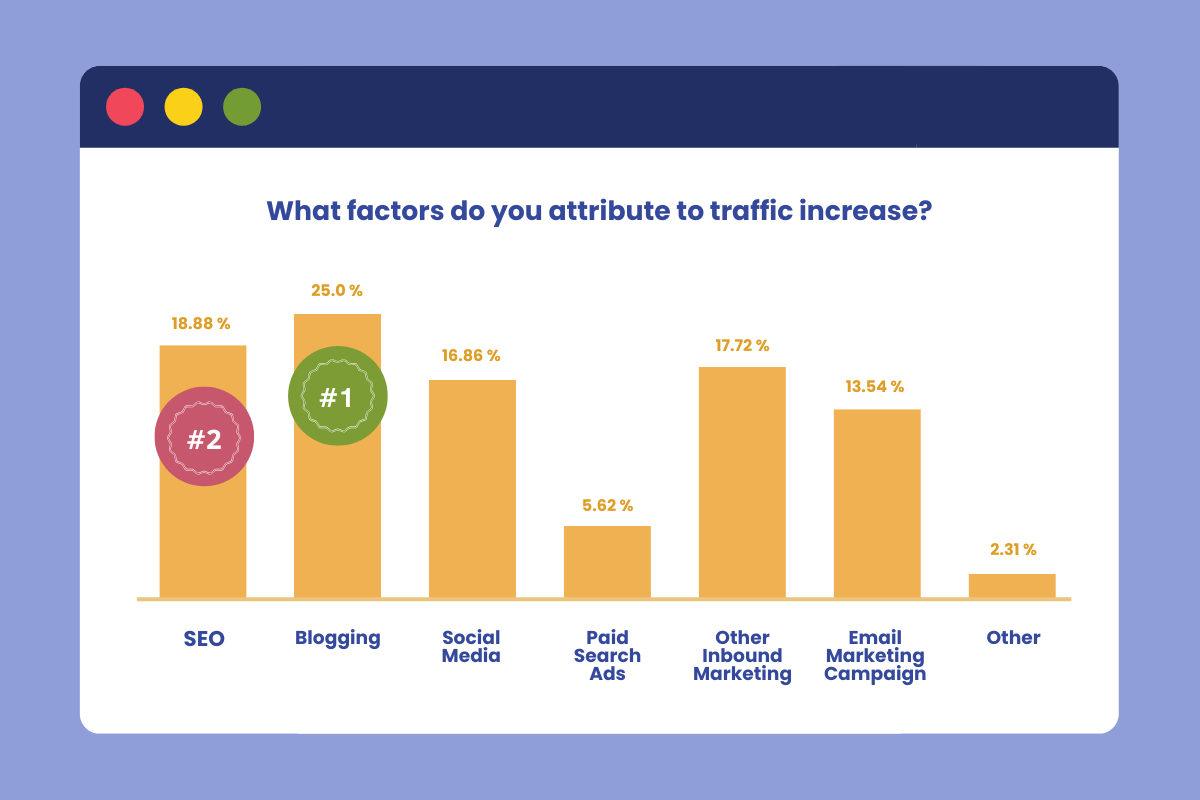
SEO is long-term advertising. Its purpose is to provide steady leads for lawyers. It may take several months for an SEO strategy to become fully effective though other forms of internet advertising, such as social media or pay-per-click advertisements, may be faster.
SEO, however, typically outperforms other forms of lead generation for attorneys. Most people with legal issues will actively seek out an attorney. SEO is an essential tool of online marketing to generate traffic but it can and should be supplemented with other forms of marketing, at least in the short term.
Implementing SEO
There are several steps lawyers and law firms should take when implementing SEO for their practice, including:

1. Keywords
The first step in SEO is to include such keywords organically so that the search engine will display your website in the search results. This will take a little time to research, as keywords may differ between legal fields and geographic location.
Your keywords should be relevant to your field and have search value, based on search volume, cost-per-click, and relevance to potential clients’ needs. For instance, a family law specialist can focus on keywords such as “divorce” or “child custody.”
Think of keywords like a term of art. Words like demurrer or voir dire have almost no meaning to anyone outside the legal profession, but such words are frequently used in courtrooms and legal briefs to refer to a complex process quickly.
Keywords serve a similar function for SEO. Search engines look for certain terms of art on millions of web pages to quickly find the “needles in a haystack” that the user requests. Using the correct keyword will enable the search engine to find your website out of the millions of other web pages that the search engine is scanning through.
Organic use of a keyword is essential if you want SEO to succeed. Web pages should not merely repeat the keywords a hundred times. You should work search words seamlessly into the webpage’s content.
No one wants to read a book about child custody that simply repeats the phrase “child custody” every sentence. Instead, the book should be informative about how child custody in the legal field works.
Websites should be functional and useful and with keywords to rank the website highly on Google or Bing. However, not every keyword is created equal.
Your keywords should be relevant to your industry and have search value based on search volume and relevance. For instance, if you practice in employment law, you might want to include key phrases on your web page such as “wrongful termination” or “illegal firing.”
Keywords should be phrases that your potential clients will be searching for if they are looking for your services.
2. Website Structure
Your website should make a good first impression when someone first looks at it. Is it cluttered and difficult to read and scroll down or is it organized, easy to follow, and accessible?
Search engines will prioritize the latter in order to give users the best results they can. Think of website structure as the table of contents and introduction for your website. The reader should understand what is going on the instant they open the page and be able to find what they’re looking for instantly if they want to find specific information about your firm.
Good website structure serves as its own form of on-page SEO. The website itself serves as its own SEO. Moreover, this is something you want to do with your website anyway, regardless of what the search engine may be looking for.
A website that is easy to understand and navigate will naturally retain more views than a website that is hard to comprehend. You should organize your website in a similar manner to how you organize your legal briefs. Use headings and subheadings to organize and divide separate and distinct thoughts. Utilize bullet points and numbers if you have lists. This will not only help any readers on your website but also increase your SEO.
More advanced features will make your website both user friendly and move it up in SEO rankings. For instance, if your office contains a large number of attorneys and staff, consider building in a search function so that a client can look up a specific person’s biography and contact information quickly.
You can also include backlinks where appropriate so that your website is easily navigable from one page to another. For example, a page that talks about divorce can be linked to a page about legal separation for ease of use.
Website structure is not only integral to SEO, but also good web design in general. Website structure, like SEO itself, leans into one of the greatest strengths of SEO: it comes about naturally without making it seem like a user is looking at an advertisement. If done correctly, most users will not notice that you built your website structure to increase your rankings on Google or other search engines.
3. Backlinks
Your website may also rise through search engine results through the use of backlinks. Backlinks are hyperlinks that lead to related web pages. Search engines look for websites that are interconnected through links.

When you conduct legal research, you may find that many courts or attorneys cite the same case over and over. When that occurs, you know that the cited case is a landmark case for your subject. The same is true for search engines.
If search engines find that multiple websites keep linking back to the same website, the search engine will know that the cited webpage is an important one. On the other hand, if your website is isolated to a single blog or article, it will not rank highly on Google or Bing.
Your main home page should contain links to a contact page, client testimonials, a small biography, and other information about you and your firm. The information should be diffuse across different pages rather than condescended onto a single screen. You should also connect your website to outside websites, such as social media sites like Facebook, or review pages like Yelp.
As with keywords, backlinks can and should arise organically. A social media page on your website should lead to outside social media websites. Website tabs for client testimonials should be linked to a webpage with client stories about the wonderful job you did for them on their case.
Search engines look for the websites that are part of a wide network. You can learn to develop backlinks to help advance your website to the top of search engine results. The best way to do this with modern SEO is to focus on generating useful content for your audience, such as blog posts about timely topics that relate to your category of law.
4. Local SEO
Local SEO focuses on optimizing a website for local search results. Local SEO is about search results in smaller local areas rather than trying to climb results in larger areas. This is valuable for attorneys who practice in a small area or only one or two jurisdictions.
If you only practice in one county in one state, you don’t need to show up in top search results in other states or for nationwide search results. You only need to appear in top search results for your jurisdiction for SEO to be effective. Conversely, someone who has been wrongfully terminated from their job in California will not be looking for an employment lawyer in North Carolina or Florida.
Like other SEO techniques, local SEO can be cheaper than traditional legal marketing practices. The goal is to affiliate your name or your office’s name with search results pertaining to the local area.

Local SEO can be done by registering your Google My Business profile and updating any local directory listings with the correct name, address, phone number, website URL, and other relevant contact information. Similarly, having your name appear in local bar association websites or other local group websites may bolster your standing in local SEO searches.
Another important step for local SEO is to have links to client reviews and local reviews of your firm, which may include review websites. Many people these days search for reviews before buying a cheap item. Imagine their perceived need for finding a review for something as important as the lawyer they are considering hiring.
Local SEO also includes online reputation management, which involves actions that are taken to manage the online sentiment about a business or brand so that it is reflected more favorably. You can use this strategy to amplify a positive sentiment about your firm or even to improve your firm’s reputation if it has been damaged.
5. Keyword optimization/utilization
Keyword optimization and utilization is a very important aspect of your firm’s web page SEO because it provides signals to search engines that the content on your page matches the queries. This provides more visibility for your firm’s web page on search engines.
In addition to this important aspect, using and optimizing keywords helps ensure you are meeting the needs of your audience, potential clients. On your firm’s home page, you may want to use several different keywords that are related to your services, such as family lawyer, divorce, and child custody. For more specific pages, you may want to focus on one keyword or phrase, such as adoption.
6. Technical SEO
Technical SEO is a process that is used to improve your website’s backend elements and architecture that will improve its visibility and performance on search engines. These types of updates often require assistance from technical SEO specialists, especially for larger websites.
This process helps search engines, such as Google, to find, crawl, understand, and index your law firm’s web page. There are certain configurations that can be implemented on your web page and server, such as page elements, and HTTP header responses.
What Are Search Engine Ranking Factors?
Search engine ranking factors are individual components that contribute to a complicated series of algorithms that determine where web pages should appear in the search results for a certain query. For many years, Google has stated that the algorithms it uses rely on more than 200 unique signals that help its users find the most relevant answer or web page. These factors may also be called ranking signals.
It is important for you to have a basic understanding of these elements, as they affect how your law firm’s web page performs and is ranked in search results.
Content
One important factor in search engine ranking is content. Content is the information that is included on your firm’s website.
The “search intent” of the individual who is using the search engine is the reason behind the individual’s search. For example, when an individual needs to find a lawyer, their search intent is to find information on lawyers in their area.
Content relevance is the extent to which the content on your web page is relevant to the preferences, interests, and needs of the reader. Having high-quality legal content on your web page helps to ensure that the user finds material that is helpful in their search and is relevant and updated.
Tools like SEMRush estimate query intent to help break down keyword data a bit further so you choose the right target keyword to rank for.
User Experience
The experience the user has finding your website and navigating your firm’s website, called the on-page experience is an important part of SEO. Currently, more and more individuals are using their mobile devices to conduct online searches.
Mobile optimization, or mobile SEO, is mobile search engine optimization. This means that the content is optimized to achieve a better ranking for your web page in the search engine results page within a mobile environment. This is also important, as more people are using voice search features to conduct online searches as well. To view a web page in a mobile view, right-click on the webpage and select the ‘Inspect’ option. You can change the Dimensions drop-down option to a specific device or responsive (mobile view catchall).
This can be done by taking certain steps to improve your firm’s web page position in search rankings. For example, measures can be taken to optimize the content on the page or to improve the meta description and title tags.
Another important aspect of the user experience is the page loading speed. This is a measure of how quickly the content on a web page loads. In relation to SEO, a fast page speed is very important.
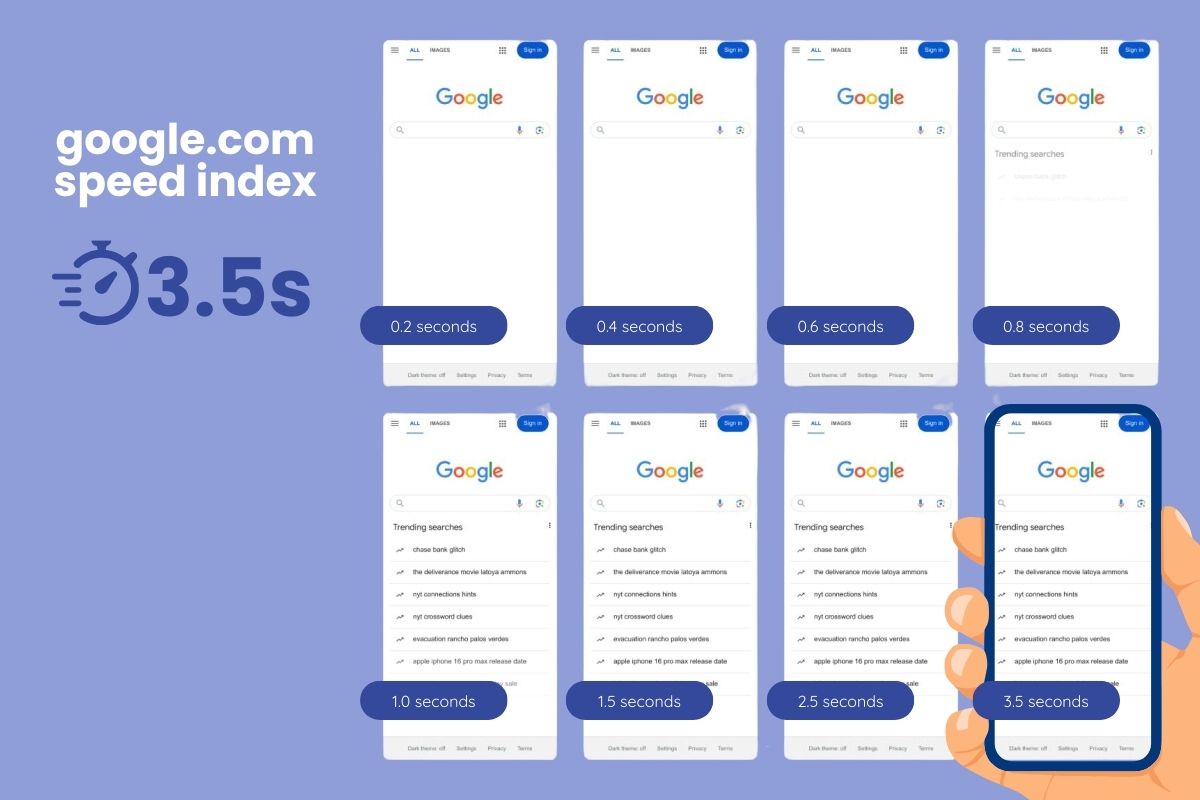
Use tools like PageSpeed Insights and Google Search Console to measure the load speed and performance of a webpage.
What Other Aspects of Ranking Signals Are Important?
There are several other important aspects of ranking signals that are important for the success of your firm’s web page.
Keyword matching
Keyword matching is a method that is used to match ads to the terms that people are searching for online. There are four main categories, including:
- Broad match: This displays results related to the keyword
- Phrase match: This provides results with the same meaning as the keyword
- Exact match: This provides results with the same exact meaning or intent
- Negative match: This is used to exclude your website from specific queries so you reach the right users
Related keywords and text
Keywords are those terms that are added to the content of your firm’s web pages in order to improve search engine rankings for those particular terms. For example, if you are a divorce attorney and you know that people looking for divorce attorney in your area also commonly have questions about child support, you should include the key phrase, “child support,” in the content of your web page.
Anchor text
Anchor text is text that is a visible, clickable text that is a link. It typically is a different color than the other text and may be underlined. A good link will also tell the reader what they can expect when they click on the link. For example, what are questions to ask before hiring a lawyer?
Content quality and depth
The quality of the content on your website has a huge impact on your website’s rankings. When your content is helpful for users, unique, and fresh, it will be ranked higher on the search engine results page.
This means that, no matter how optimized your website is, if the content you included is not valuable, you will not get higher rankings. When your content is duplicated or too similar to other web pages, it can cause a negative impact on your SEO.
Content freshness
Updating your law firm’s web page content is a good way to boost quality. If you regularly add new information and update posts, it sends positive ranking signals to the search engines.
Domain authority
Domain authority is a metric that grades a website’s expertise on a certain topic and its ability to rank on search engines. A website gets a score from 1 to 100.
The higher the score, the higher its chances of ranking on Google for keywords. This can be done by creating content that is focused on your industry or your main topics, such as your law firm and the services you offer.
Balancing SEO and Other Website Elements
Most websites must balance SEO with other website optimization elements, including conversion rate optimization (CRO) and user experience (UX). Law firms utilizing SEO are no different.
You will eventually need all three of these website elements to work in concert with one another. However, they may also work against one another, depending on how your office has set its website up.

SEO is about placing a website highly on search engines so that potential clients can find your website. In contrast, CRO is about getting the user to perform a certain action once they are actually on your website.
For law firms, CRO means having the user pick up the phone to inquire about retaining an attorney for their potential legal issue. SEO and CRO are not exclusive goals; prospective clients need to find your website in order to use your website to contact your office. For instance, backlinks that lead users from your Facebook or Twitter page to your contact information on your website can increase both SEO and CRO in a single stroke.
However, there is a risk that SEO can sacrifice conversion elements on a webpage and make the traffic less valuable. A website that is overly stuffed with keywords may initially drive up SEO, but will also create a lesser user experience and discourage users from returning to your website.
If your website doesn’t properly balance SEO with CRO, you may get lots of people looking at your website, but most of that traffic may not retain your legal services. Conversely, an emphasis on CRO may lead to a loss of SEO ranking factors. Most of the people who land on your website will turn into clients, but the number of people who view your website may dip.
SEO and UX must be similarly balanced, though are not mutually exclusive either. UX is about the internal experience that a user has when interacting with a website. A website that makes it easy for a person to make a purchase will lead to more purchases for that website.
On the other hand, a consumer who is frustrated with the website may simply close their browser tab and never return again. For a law firm, the user experience should be curtailed to make it easier for a potential client to learn about the attorneys and how to contact them.
Using SEO to Optimize Websites
If you decide to work on SEO on your own, there are six key factors to use:
- Keyword research: Examine and analyze the keywords that you want your website to be listed in the top search engine rankings for. The more popular keywords will be difficult to climb the search engine rankings for, but would yield the most return on your time.
- On-Page SEO: Structure your website so that it is easy to navigate and use. This will not only help users find the information they’re looking for, but will also boost your website SEO visibility.
- Local SEO: While it may be tempting to have your firm listed as the top family law or employment law firm in the world, it’s really unnecessary unless you’re in charge of marketing for a global firm. Instead, most attorneys will want to focus their SEO efforts on their own cities or jurisdictions that they practice in.
- Content marketing: Quality content on your website will not only garner interest from users but also improve your SEO standing. A website with substantive content will rank higher than websites that are barren or are simply marketing fluff pieces.
- Link building: Websites consist of pages that are linked to one another. Use backlinks to make sure your website is connected to other web pages or websites as needed. Take care not to overdo it as a website that has too many links unnaturally asserted may go down in rankings.
- Ranking factors: The ranking factors described above need to be consistently maintained over a period of time. This does not need to be done daily or even weekly, but pages need to be updated to keep them fresh for SEO to work.
Attorney SEO FAQ
Do I need SEO?
Yes, if you are an attorney who wants to attract more clients and increase the success of your law firm, SEO is an important part of that. People nowadays search for their legal assistance and representation on the internet, often on a search engine such as Google.
The results that they get from their first search engine results page will often be what they use to find the help they are seeking. If you are not using SEO to your advantage, you could be missing out on numerous potential clients who are searching the internet for help every day.
What happens if I do not engage in SEO?
If you or your law firm does not engage in SEO, your web page’s rank will decline, which will result in less visibility and traffic to your website. This leads to limited visibility and a decreased potential for revenue for your practice.
Is SEO different for law firms than other industries like retail?
Yes, SEO for lawyers is different from other industries, such as retail. It is important when building your firm’s web page content to ensure you are following your state’s bar association rules governing attorney advertising.
For example, in your state, the state bar may prohibit the use of language such as we are the “best” law firm in the area. Because of these issues, it is important for your firm to be familiar with the guidelines for your specific state.
How Can LegalMatch Help?
LegalMatch can be a great asset to help with your law firm’s website SEO. Signing up as a member attorney on LegalMatch will provide you with access to a proven process of attorney-client matching.
This is a type of legal marketing that is not as common as the services other companies provide. The LegalMatch process allows potential clients to be directly matched with member lawyers based on the needs of both parties.
While most marketing companies focus on creating and optimizing websites and generating leads, LegalMatch focuses on attorney-client matching as the main sources of leads.
With this process, clients can find lawyers, including yourself and your firm, who meet their needs easier and faster. If you become a member lawyer at LegalMatch, you can save money on your legal marketing costs while still obtaining lead generation and advertising value. This can help your law firm, as it speeds up and maximizes attorney lead generation.

